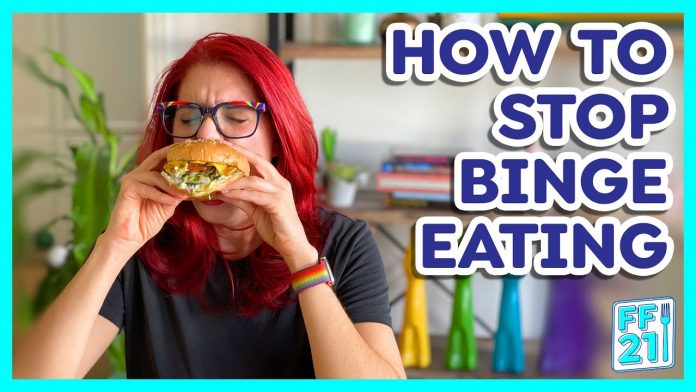How can you resist nervous hunger and the urge to binge?

How to stop binge eating. The first step in dealing with a problem is to understand its characteristics and causes. What are binges, what is nervous hunger, and why do they occur? The term binge is eating an excessive amount of food, both in terms of calories and relative to the circumstance in which one is eating. Suppose I serve two large plates of pasta that certainly exceed the healthy quantity, but I do it as a Sunday meal or at a dinner with friends, which occasionally happens. In that case, these episodes cannot be defined as “binges” in a pathological sense. If, on the other hand, I eat two packs of ice cream as a snack while I’m home alone, then it is likely that that behavior is a psychological binge.
Binge eating and nervous hunger are often considered synonymous, but they are not always the same in reality. I can be prone to restless needs without bingeing. A typical example of nervous hunger without binging is the continuous nibbling of food at various times of the day. This behavior produces fewer side effects on weight but can lead to an unbalanced diet with consequent physiological problems. For example, if I habit nibbling a lot during the morning or can’t resist eating snacks just before dinner, I may arrive at the “official” meal with little hunger, eating little of the proper nutrients.
What creates the impulse to binge or nervous hunger?
Usually, the cause lies in the
emotions. The person experiences an emotional state that they cannot manage or cope with and focuses on food. Nibbling or binging becomes a means of distraction or compensation, fulfillment or reward.
What to do after a binge or a nibbling phase? Go back to eating normally. It might seem like a paradox, the suggestion to continue to eat again! Yet another cause of bingeing is often skipping one meal for the next one. Skipping a meal because you have eaten before means a lot of time passes before eating again. For example, if I have eaten a snack and don’t eat anything for dinner, I will arrive hungry for breakfast or lunch next time! And this feeling could lead me to another binge!
Maintaining a dietary routine allows you to reduce the quantities ingested during a binge (if I am already complete, likely, I will soon stop binging because I will feel full much sooner) and to reduce the likelihood of new binges (if I am full, it is little likely to have an urge to look for food).
What to do to prevent binge eating and picking? How to stop binge eating
Let’s go back to point one: identifying the emotional causes. Realizing that you are under stress, that you are going through a moment of anxiety, that you have experienced an episode that has left a bad taste in your mouth or that has upset or made us nervous, or realize that you are bored and lacking in stimuli. If we can be fully aware, for example, that we are in great tension for an upcoming university exam or a job interview, then we should try to ask ourselves.
“What could I do to manage this emotion, other than eating?”
If this question cannot be answered, perhaps it is appropriate to contact a therapist to start a psychological path of managing emotions. In this case, cognitive-behavioral psychotherapy is particularly effective. Maybe you need to strengthen your self-esteem or overcome a phobia or insecurity. Perhaps you need to understand how to be more assertive and effectively expose your thoughts and opinions. Maybe what you are doing does not satisfy you but changes. You need support and a guide.
In any case, you need to focus on solving the underlying problem, which leads you to seek food as a means of comfort.
Ah, one last thing: Eat slowly! Even the doctor and nutritionist say that you have to eat slowly to allow digestion to activate and feel full sooner. BUT, that’s not the only reason to eat slowly. Savoring food, enjoying what we have on our plate or in our hands is also helpful for making us rediscover flavors, guiding us towards more satisfying (and often healthier) food choices. Eating slowly also lets the emotional wave pass and gives time for anxiety or boredom to subside. Eating slowly can prove to be the right balance between indulging in the whim and avoiding binges. Mindful eating (conscious eating) can make us eat everything we want, in the proper doses. Without falling victim to drastic diets, unbalanced diets, or feelings of deprivation and restrictions.
Let’s recap the four tips: How to stop binge eating
1) Understand the problem and its causes, inform yourself by reading articles and publications that deal with this problem.
2) Pay attention to your emotions and ask yourself if you have other resources to deal with the emotional event. If the answer is no, consider seeking help from a therapist.
3) After a binge, do not fall into food restriction and fasting. Go back to eating almost normally, trying to give your body a routine. And avoiding periods of abstinence from food that can cause further nervous hunger or “cravings.”
4) Eat slowly. Paying attention to mealtimes and eating consciously reduces the frequency and risk of binges and promotes the feeling of satisfaction of the palate and fullness.
Also Read: How to write a novel
